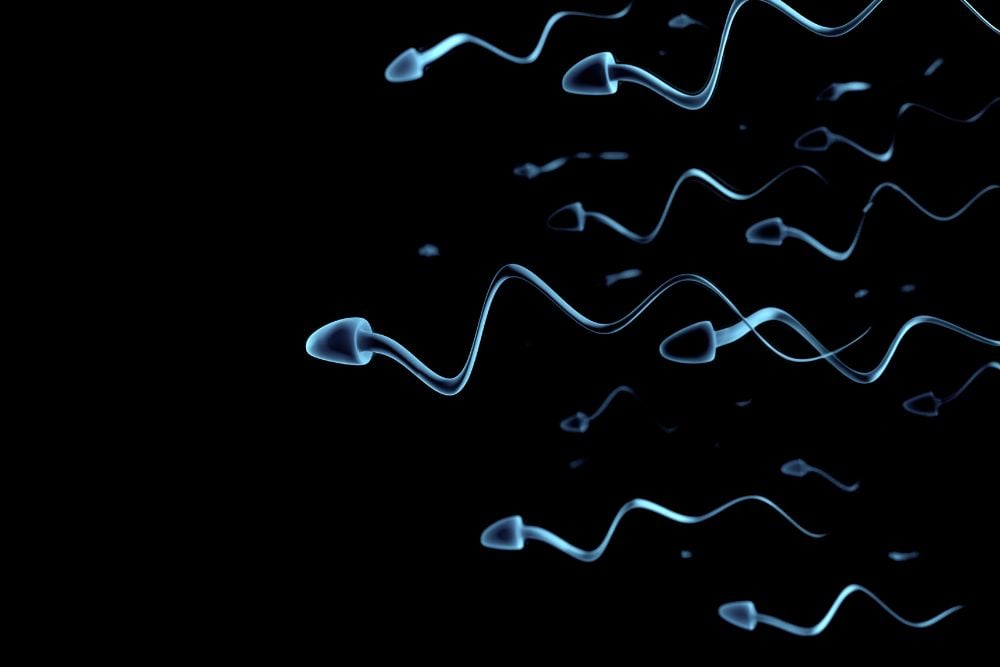Understanding Sperm Disorders & Male Infertility

If experiencing male infertility, know that an estimated 10% of all United States males share your concerns. While often accompanied by an unusual semen analysis, even with normal findings, various male infertility factors may contribute. If struggling at length, consider seeing your urologist for diagnosis and treatment. Improving conception and pregnancy outcomes may require some work, as you’ll need to understand common reproductive health and sperm-related conditions.
Male Infertility, a Widespread Health Concern
Affecting more than five million US couples, male factors contribute to at least half of all infertility cases. To achieve pregnancy, male reproductive organs and structures must work properly, including healthy sperm to fertilize eggs. Seek medical help if you’re 35 years or older, and have failed at conception for at least 6 months, or one year, if under 35. An earlier visit may be needed with a family history of infertility, a history of testicular, prostate, or sexual problems, or you’ve undergone cancer treatment. As sperm issues play a major role, your urologist may first conduct a semen analysis. This evaluates such sperm parameters as:
- Count, the average number present in a semen sample (ejaculate)
- Concentration, the number in one milliliter (ml) of semen, and among the most important male fertility factors.
- Motility (sperm movement)
- Morphology (sperm shape and size)
- The presence of sperm clumping (agglutination).
Male Infertility Factors To Acknowledge
Certain symptoms may indicate male infertility, like age, as conception concerns often affect couples with a male partner 40 or older. Testicular issues may contribute, as they produce testosterone, the male sex hormone. Other hormones made by the pituitary gland — luteinizing hormone and follicle-stimulating hormone (FSH) — signal the testes to develop testosterone and sperm, affecting fertility. Other symptoms include:
- Abnormal breast growth
- Decreased facial and body hair
- Erectile dysfunction, the inability to have or keep an erection
- Ejaculate concerns, like difficulty ejaculating
- Testicular changes, including small, swollen, or painful testicles
- Obesity
- Varicocele, a painful condition involving testicular vein growth.
Sperm Disorders Contributing to Male Infertility
Various sperm-related conditions may cause or worsen infertility. They’re all treated by Dr. Martin Bastuba and his Medical Director of Male Fertility & Sexual Medicine Specialists (MFS) team.
- Oligospermia, or low sperm concentration, is a sperm count of less than 15 million sperm per ml. While fertilization chances may be reduced, patients can still father a child. Other symptoms may include erectile dysfunction, testicular pain, swelling, or lumps, and a lack of facial and body hair.
- Azoospermia, or zero or no sperm count, having no measurable sperm in the ejaculate, may cause infertility in about 10% of all men and those assigned male at birth (AMAB). Typically, it develops from an obstructive cause, in which sperm cannot be delivered, as with a vasectomy. It may also result from non-obstructive conditions, in which sperm are impacted by such factors as hormones, testicular failure, or cancer. Symptoms include having red or brown, thicker or thinner semen, or ejaculate with a strong odor or low volume.
- Azoospermia, or asthenozoospermia, involves having low sperm motility, where at least 50% of a man’s sperm cannot move properly, and fail to reach and fertilize eggs. Often, patients may have a low sperm count.
- Teratospermia, or abnormal sperm morphology, involves unusual sperm shape and size, impacting conception success
Learn More About Male Infertility and Sperm Conditions
Multiple factors may cause or worsen male infertility, including those for sperm. If you suspect fertility concerns, visit your urologist for a fertility evaluation, at the earliest opportunity. To schedule a consultation with Dr. Martin Bastuba, or for general fertility questions, we invite you to contact us today.






